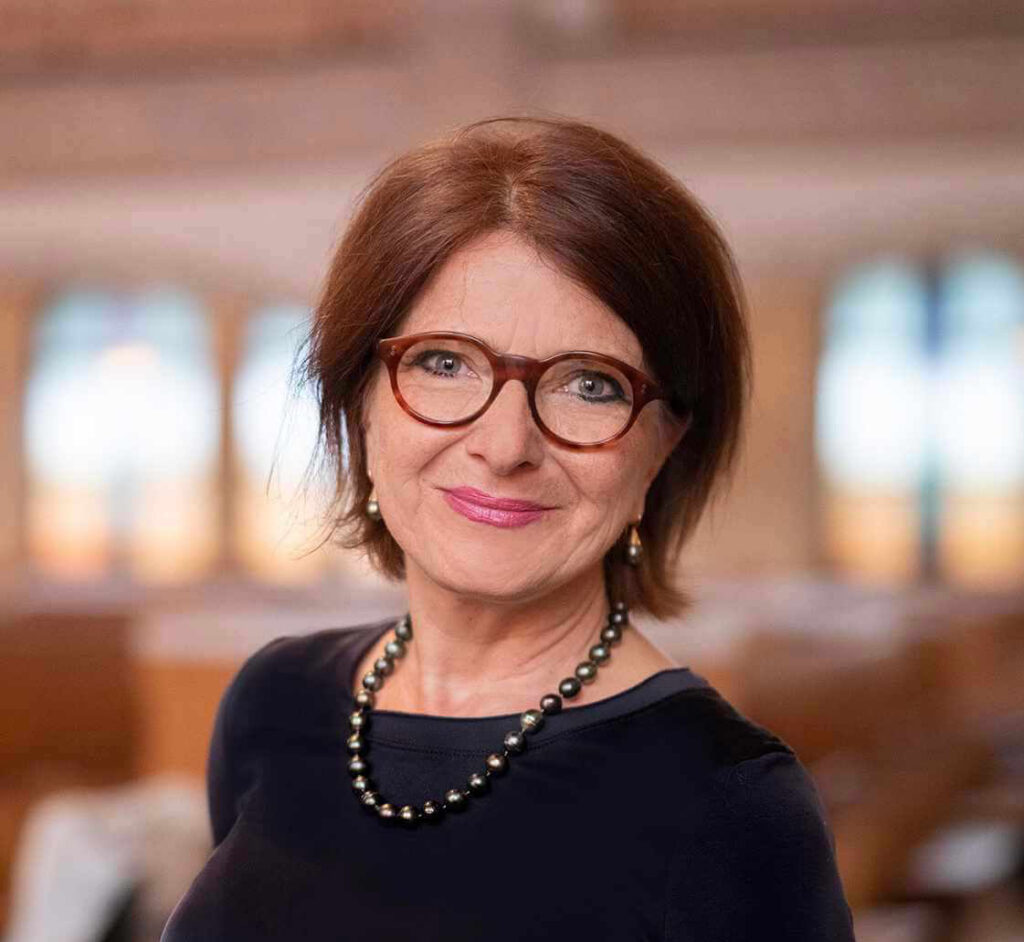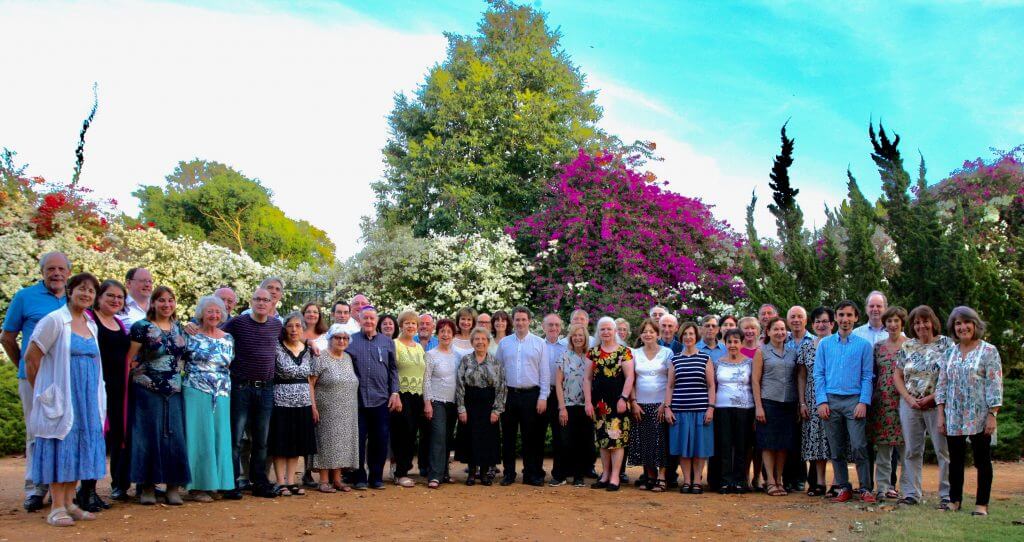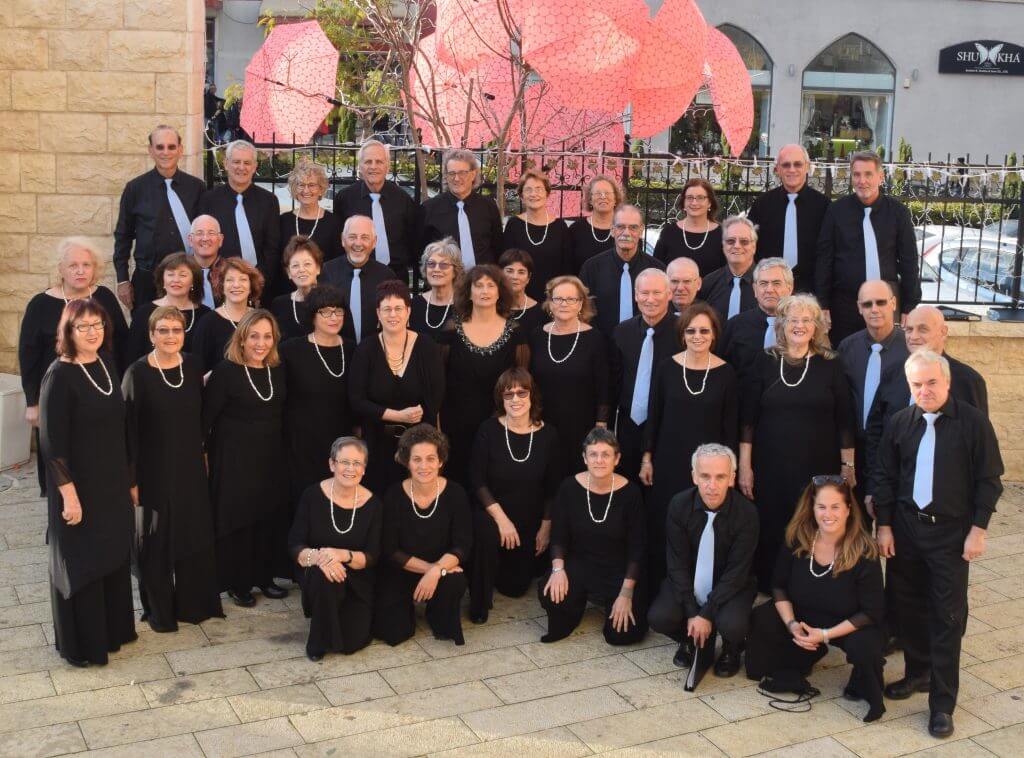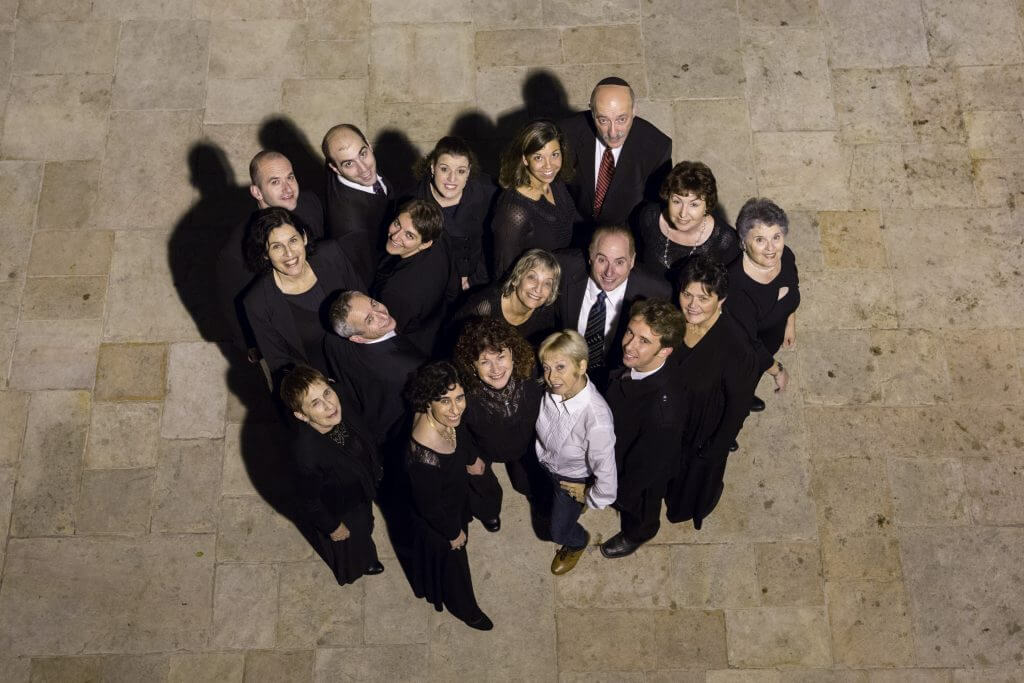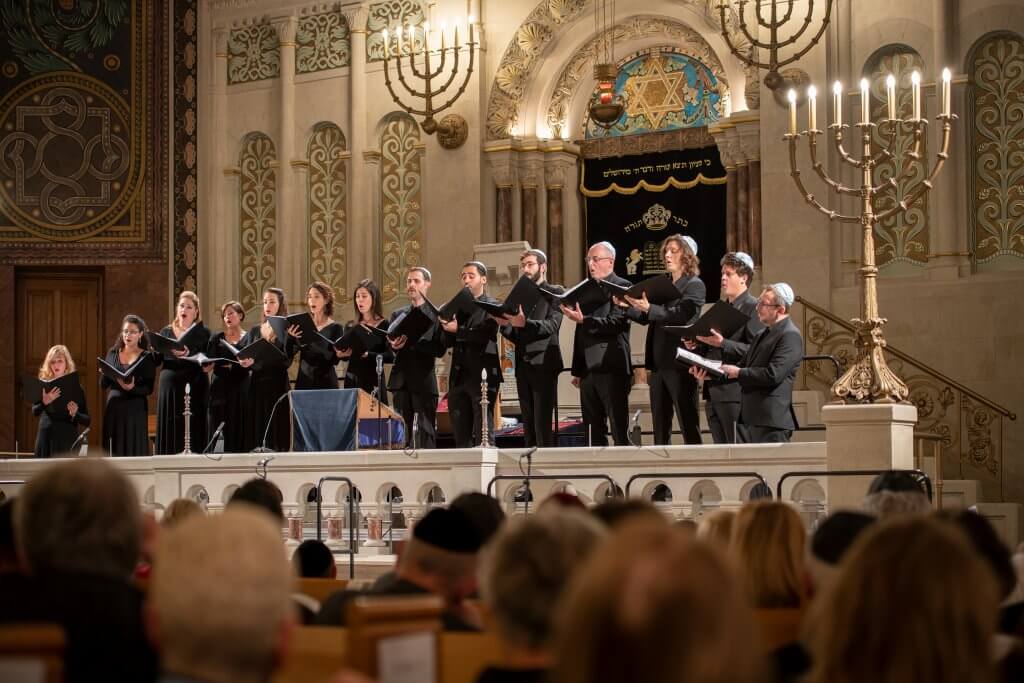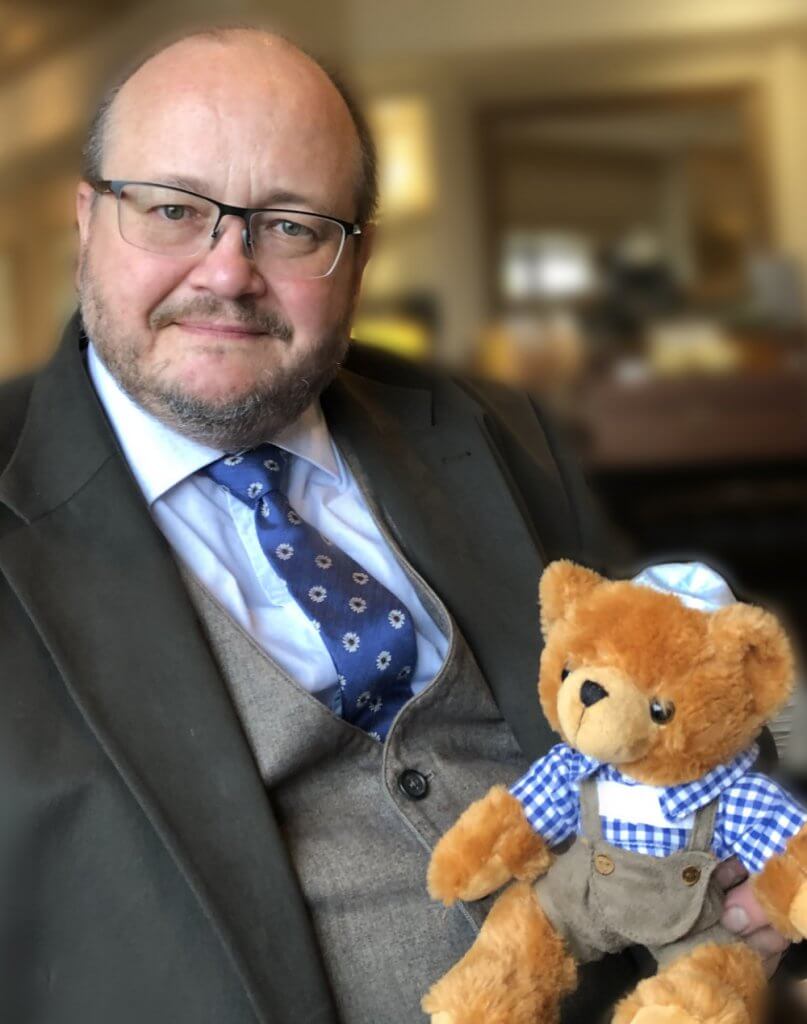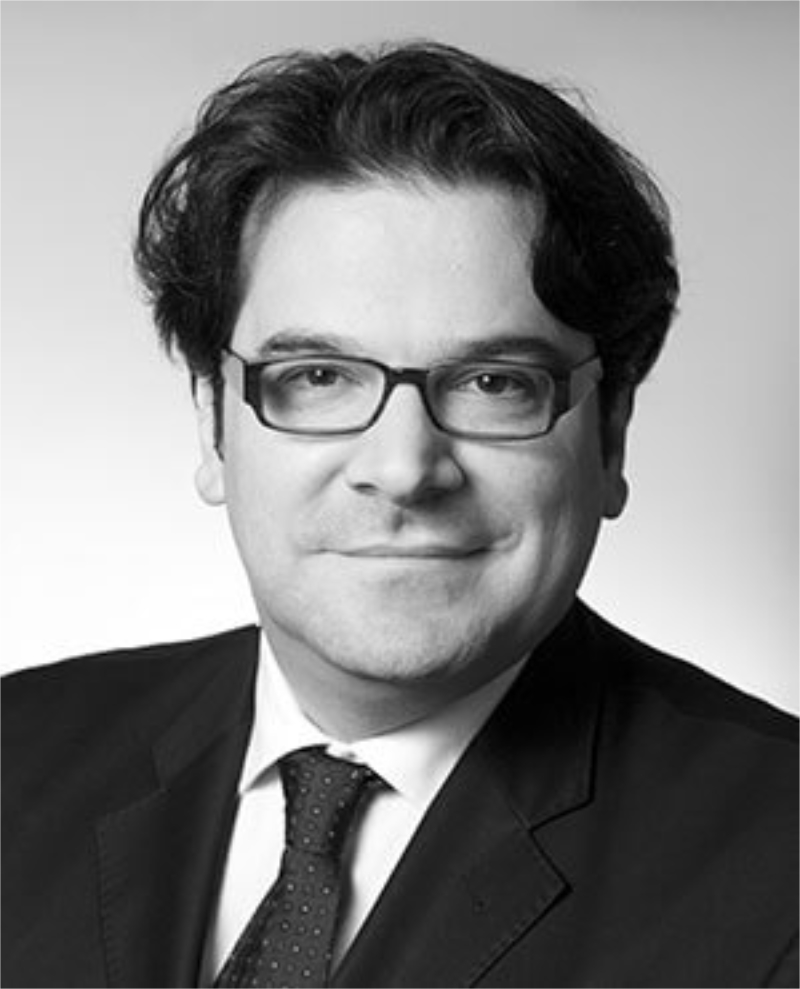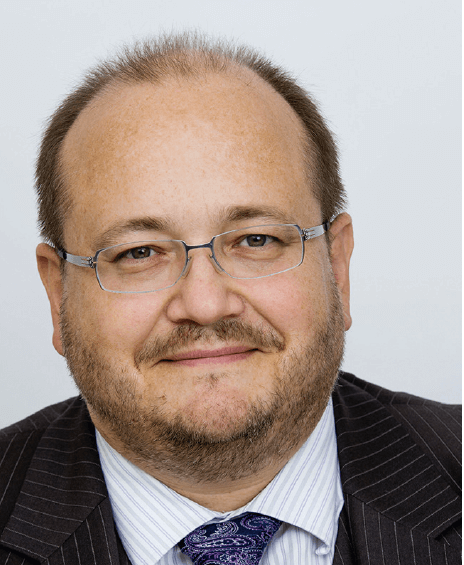Louis Lewandowski
and the rest of the world
Louis Lewandowski Festival 2017
Remembrance after the Holocaust
Two months after the German surrender and the end of the Holocaust, around two hundred people gathered for a memorial service in the British sector of Berlin.
The venue was the Pestalozzistraße synagogue, which had been partially rebuilt after the destruction of the war.
An American soldier described the service in a letter to his wife as “extremely impressive” and emphasized that “everyone wept” and one man lit the eternal light.
The ceremony began with Lewandowski’s “Schehechejanu”, a blessing recited by senior cantor Leo Gollanin, a survivor of the war.
The importance of music
Throughout the service, music was played on a harmonium.
The American soldier remarked that the music was an “unmistakable attempt to return to the old days”.
By the “old days” he meant the aesthetics of the pre-Weimar era, which were strongly influenced by the works of Louis Lewandowski.
Lewandowski, one of the most influential composers of 19th century synagogue music, had a lasting influence on the Western Ashkenazi style through his work as a teacher in Berlin.
Even after his death in 1894, his works continued to be received in Jewish communities throughout Europe and beyond.
Lewandowski’s legacy and its dissemination
Lewandowski’s music, deeply rooted in the ideas of the Haskalah, combined aesthetic and religious aspects in a unique way.
This balance ensured his continued influence in the 20th century, despite a weaker reception.
In the meantime, his music also reached the New World, where both Ashkenazi and some Sephardic synagogues adopted selected pieces.
Lewandowski was heard not only in Europe, but also in more remote places such as the Shanghai ghetto, Japan and Australia.
Revival after 1945
After 1945, Lewandowski’s music experienced a renewed presence in the post-war landscape of Berlin and a divided Germany.
The Pestalozzistrasse Synagogue took over the Lewandowski service from the New Oranienburger Strasse Synagogue.
Many congregations without a cantor or choir, as was often the case in post-war Europe, were able to listen to Lewandowski on the radio, thanks to broadcasts initiated by Adolf Schwersenz for Berlin’s RIAS in 1946.
These broadcasts were later taken over by other stations.
The custom of synagogue concerts was also resumed in the post-war period, with Lewandowski’s works naturally appearing on the program.
Continuing legacy
Through its presence in concerts, Lewandowski’s music has played a significant role in building interfaith dialog and mutual understanding between very different audiences.
The continued presence of Lewandowski’s music in various contexts demonstrates his unbroken and even extended legacy.
In 1952, Magnus Davidsohn, the former senior cantor of Berlin’s Fasanenstrasse Synagogue, asked whether Lewandowski’s work would continue to endure.
The founding of the Louis Lewandowski Festival in 2011, which celebrates the composer’s legacy every year, provides a clear answer: his significance remains unbroken to this day.
Prof. Dr. Tina Frühauf

